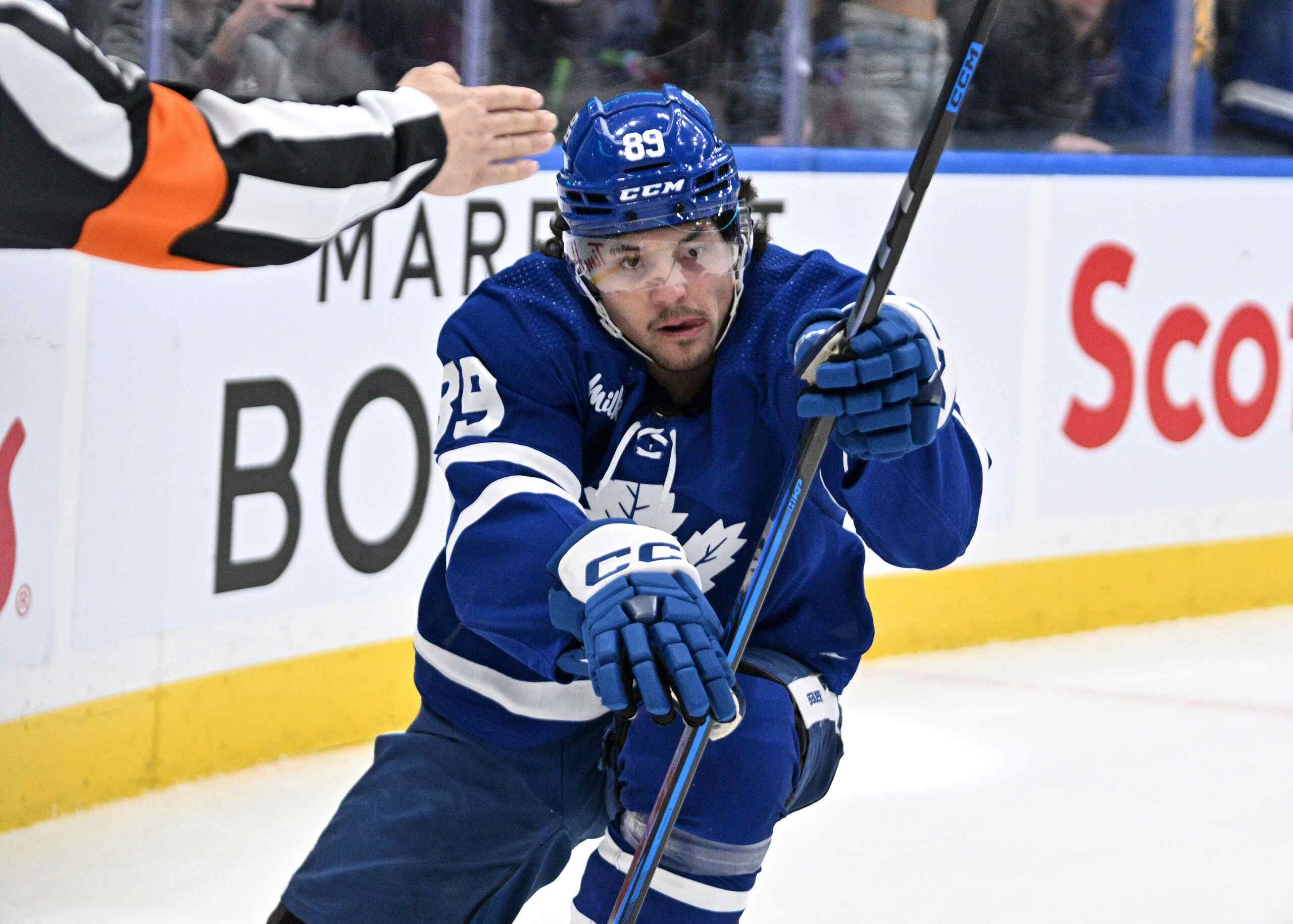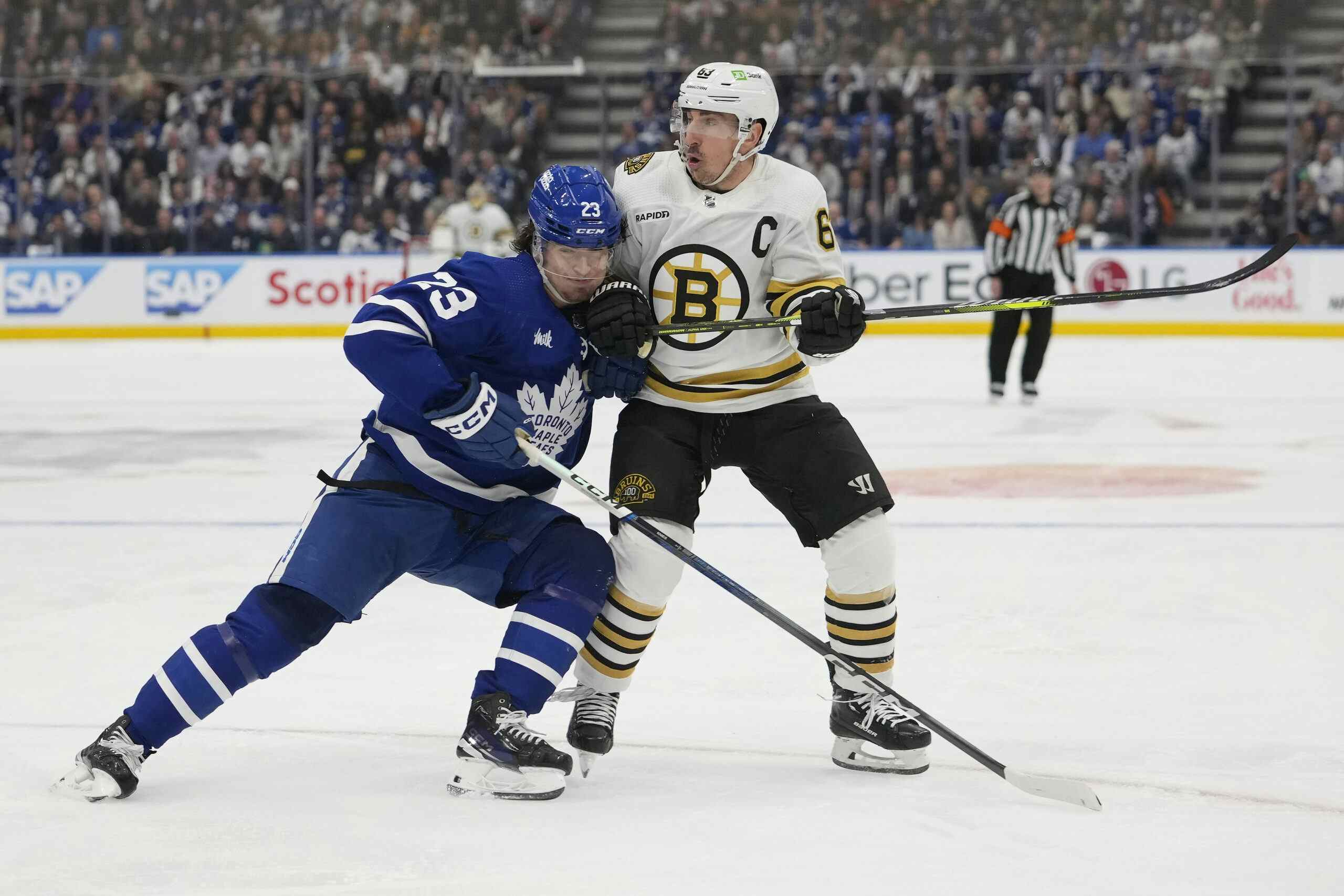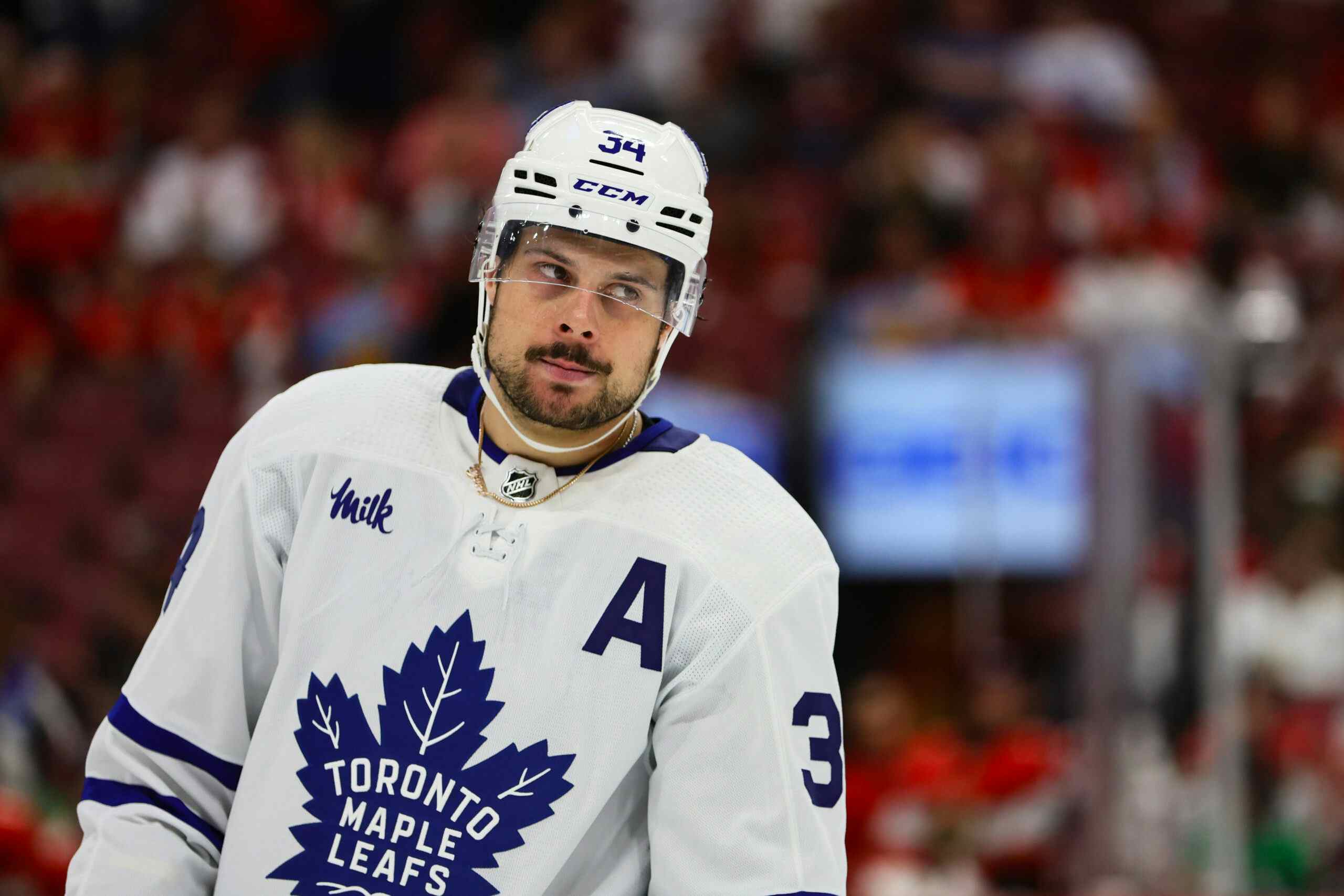Is David Bolland’s injury the reason the Leafs are losing so many games?
By Cam Charron
10 years ago
I’ve gotten into some discussions recently about whether the Leafs’ injuries provide a valid excuse for their recent record. The popular one is that the Leafs slide began at the start of November, after David Bolland went down to injury in Vancouver with the Leafs record at 10-4-0. Since? Toronto has gone just 7-12-3 with just three wins in regulation, and their lineup has been further exasperated with the removal of Tyler Bozak and the constant sufferings of Joffrey Lupul.
Right?
Well, not really. There’s been somewhat of a pattern in the Leafs’ injuries this season that make it fairly likely that one guy being out would account for a disproportionate share of team victories.
Let’s start with what hockey statistics, or generally, all science, can be used for, and that’s falsification. The philosopher Karl Popper believed the scientific theory had three elements: the hypothesis, the explanation, and then the testing. The idea is that the testing was never complete, as that our scientific laws can be falsified, but not verified. This is part of the core idea of Lebanese-American options trader-slash-philosopher Nassim Taleb, who pointed out that the (seemingly) factual statement “all swans are white” can be proved incorrect by the single observation of one black swan. Taleb’s philosophies descend from Popper’s, and in his most recent book Antifragile, he discussed the concept of via negativa, meaning you can’t prove what is, only what “isn’t”.
You cannot say what the Maple Leafs’ collapse is due to, but you can begin to disprove concepts out of hand. Is their record due to too many absentees from the lineup? Not really. While they have faced the extended absences of David Bolland, Tyler Bozak, David Clarkson, Joffrey Lupul and Nik Kulemin for various reasons, the team only has a significantly better record with Bolland in the lineup than not.
Here’s a chart of the Leafs’ schedule this season. Missed games are indicated by highlighted cells:

If you were to randomly distribute a 17-16-3 record across the schedule, I highly doubt that there wouldn’t be at least one player for which the Leafs would have a disproportionately winning record. This is just due to the staggered nature of the injuries.
More arguments in favour of the Leafs not falling apart without David Bolland? Their strong record last season (without Bolland) as well as Chicago’s strong record this season despite having lost him to trade. The Blackhawks remain the best team in the National Hockey League in both points and overall goal differential. The loss of their fourth line centre did not affect them as much.
My argument isn’t that the Leafs don’t miss Bolland, it’s that if the team had a brutal record during the 12 games Clarkson has been out (rather than 8-4-0 versus 9-12-3 when he’s in) or the 20 games Bozak has been out (rather than 10-9-1 versus 7-7-2 when he’s in) the story would change from “the Leafs miss [this player]” to “the Leafs miss [that player]”. Injuries are just a part of hockey, as we will see below with a quote from an NHL player.
DEPTH DEPTH DEPTH
If you assume the Leafs won’t get hurt at all this season or tired, and two-thirds of the roster play 82 games, like Anthony Petrelli points out, the opening day roster can be seen as an upgrade to last year’s. Unfortunately, the team will have little depth if they fail to trade John-Michael Liles, and if Mark Fraser’s arbitration award comes in at more than $900K, any demotion of his will count against the cap a little. The team can ill-afford to see Franson or Kadri come in at more than our projected amounts (Franson was at $2.8-million and Kadri at $3.5-million, but Carl Gunnarsson’s deal was a little more than our $2.8-million projection, as was Jonathan Bernier) and every $100K counts during this season.
Now, both Franson and Kadri came in at below the amounts projected, with some excellent work done by Dave Nonis, which meant the team didn’t have to give up a roster player to keep either, but it also meant that they didn’t have a lot of space to sign depth. With an added centreman in Bolland and two new wingers, I agreed the opening day roster looked pretty good despite the (preventable) losses of Mikhail Grabovski and Clarke MacArthur.
But that roster came at the expense of depth. You can’t expect two thirds of the roster to play 82 games a season. You just can’t. Over the last three 82-game seasons, 324 players have suited up for at least 80 games, about 3-4 on average per team. It’s the manager’s job to put together a roster with depth so that injuries don’t get nullified. Sometimes, injuries can have pleasant effects—just look at how the rookie goaltender Martin Jones is faring with the injury to Jonathan Quick. One of the Vancouver Canucks’ top pairing defencemen, Chris Tanev, began to be used back during the 2010-2011 season when the team hit its 13th man on the depth chart. Injuries to centremen forced the Leafs hand and got them to pick up Peter Holland, who has been excellent in blue and white. You can do excellent things when given the opportunity to experiment with roster spots when players are injured.
There’s never an excuse. There’s never an excuse. Injuries, tired, it’s all BS. It doesn’t, you know, those are excuses, and they’re useless, and so what it comes down to is your will. It’s your heart and your character, if you know what I mean. We should able to win with half of our guys out, you know what I mean? Just look at exhibition games, you know what I mean, you’re playing with half your lineup and sometimes you’re playing against a team that has their full lineup, and I know maybe the game doesn’t mean as much, but there’s still ‘the underdog wins’. There should be no reason, there should be no excuses, you know, that’s negative stuff. All you can focus on is what you yourself can do to get prepared and then be your best, and trust that your teammate across from you is doing the same thing.
Part of the problem is that the Leafs have just two wins this season where their starting goaltending didn’t steal them the win. That was the home game against Edmonton early in the season where Joffrey Lupul tied the game with 19 seconds to go, and against Chicago when Jonathan Bernier had a pedestrian game in a 7-3 win.
As for now, I agree with Reimer. Injuries are not excuses. Injuries are injuries, injuries breed opportunity and teams have succeeded without star players before. The Leafs aren’t losing because they don’t have David Bolland, the Leafs are losing and David Bolland happens to be the lineup change that syncs up with the sudden slide. It’s confirmatory but doesn’t explain. Bolland didn’t blow up the ship, he was simply the last to get off of it before it exploded.
Recent articles from Cam Charron





